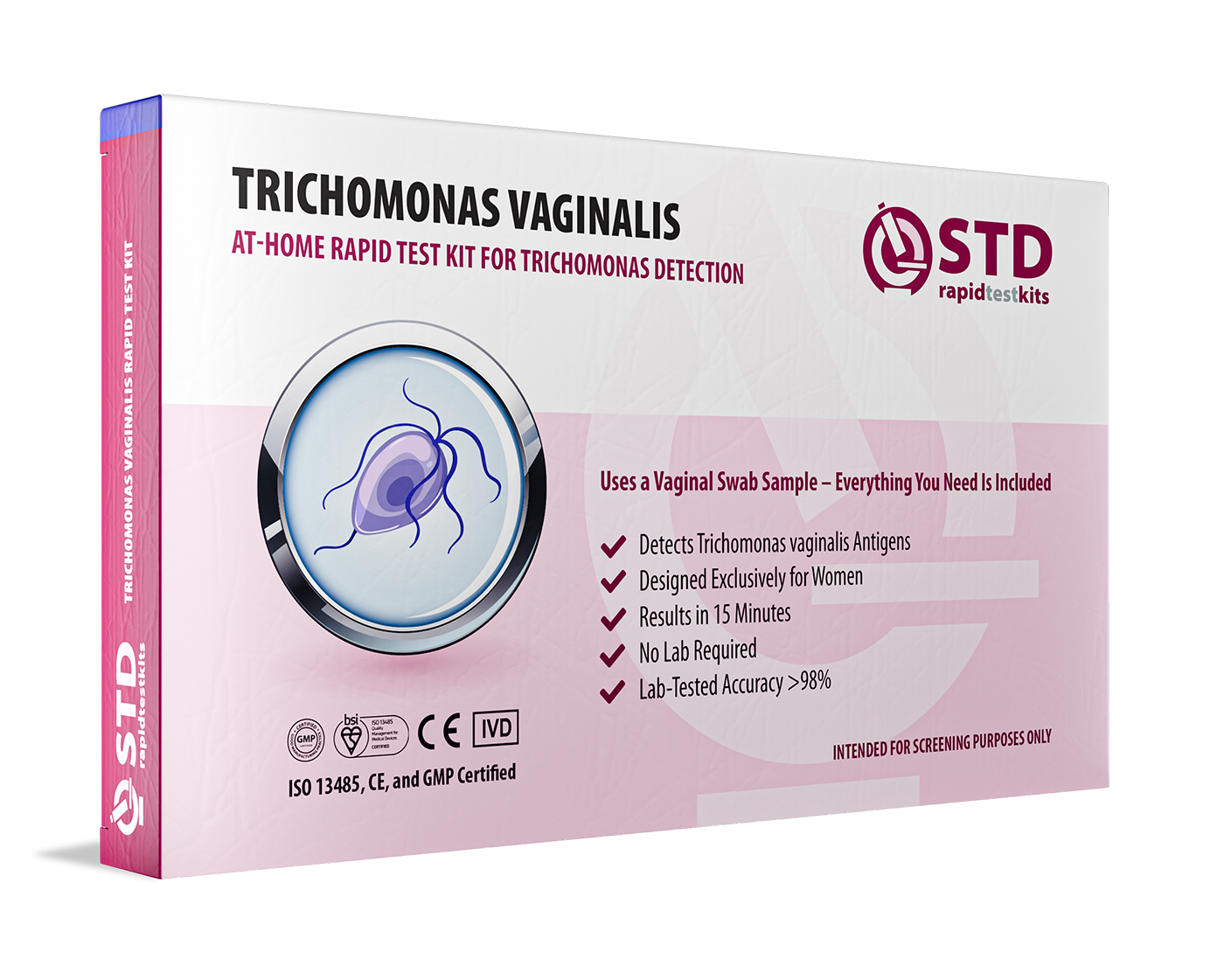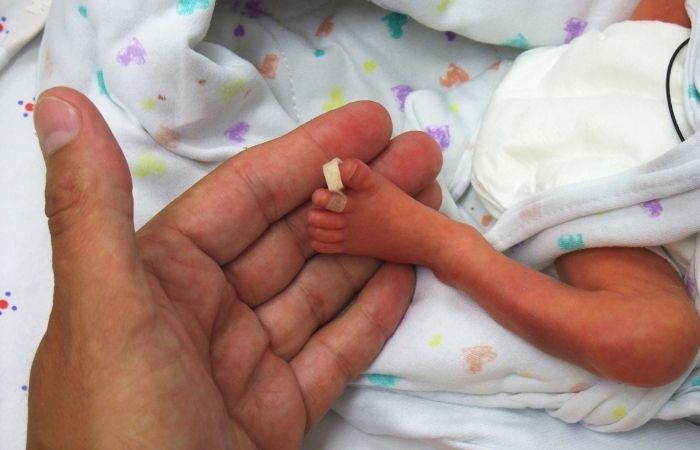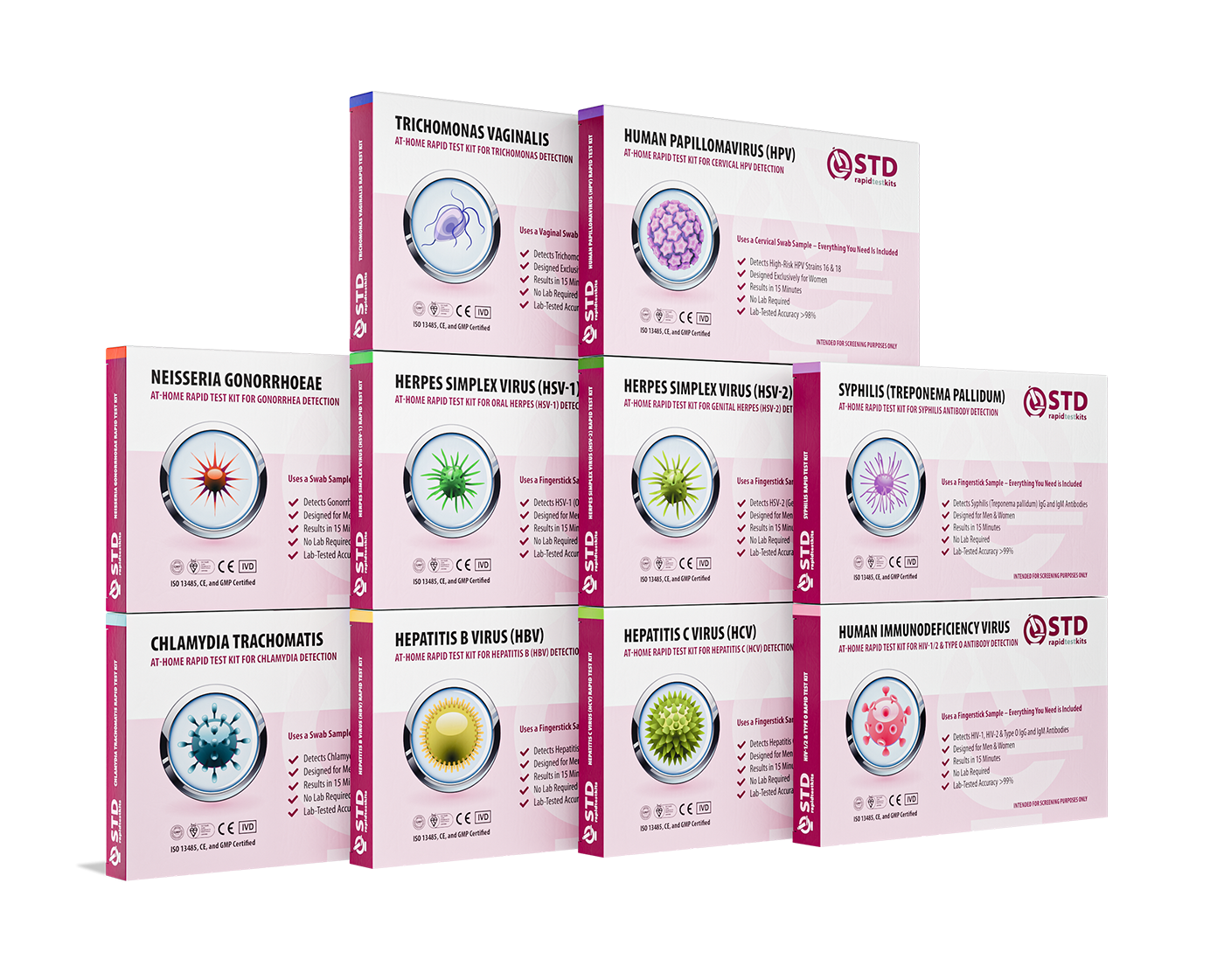Quick Answer: Trichomoniasis in pregnancy can increase the risk of preterm birth, low birth weight, and other complications. OBs treat it quickly, usually with metronidazole, which is considered safe. But treatment only works if both partners take it. If one stays untreated, reinfection is almost guaranteed. The takeaway? Your role as a partner matters, this isn’t just her diagnosis. It’s both of yours.
Trich Isn’t “Just” an STD, Especially During Pregnancy
Most people who carry trichomoniasis don’t even know they have it. It's caused by a parasite, Trichomonas vaginalis, that spreads through genital contact. Symptoms? Maybe some itching, discharge, irritation. But many have no signs at all. That’s where it gets dangerous. Especially during pregnancy.
Trich is linked to serious risks: preterm labor, low birth weight, and premature rupture of membranes. In rare cases, it’s been tied to postpartum endometritis or neonatal infection. And according to the CDC, the presence of trichomoniasis can also increase the risk of acquiring or transmitting HIV, especially in areas where both infections are common.
But here's what most OBs don’t say directly, at least not loudly enough: treatment works. Fast. Effectively. The risk is manageable if both partners are treated. The danger escalates when one assumes it’s “not their problem.” That’s when reinfection cycles start. That’s when the antibiotics stop working. That’s when a parasite turns into a pregnancy complication.

People are also reading: The Importance of Public Health Campaigns in STD Prevention
Yes, It Could’ve Come from You. No, That Doesn’t Make You the Enemy
Let’s cut through the shame spiral: if your pregnant partner tests positive for trich, that doesn’t automatically mean cheating. It doesn’t mean anyone was “dirty.” Trichomoniasis can live in the genitals for months, sometimes longer, without causing symptoms. You could’ve gotten it years ago and never known.
We don’t talk about this enough, but STD diagnoses during pregnancy often blow up relationships, not because of what they mean, but because of what they trigger: suspicion, silence, defensiveness. But OBs have seen this hundreds of times. And what they’ll tell you, what they wish you knew, is that this isn’t the moment to retreat. It’s the moment to step up.
Testing and treating both partners is the only way to stop the infection. According to ACOG, even when the partner has no symptoms, they can carry and transmit the parasite. That’s why Expedited Partner Therapy (EPT) exists, it lets your OB prescribe meds to both of you, no judgment, no finger-pointing. You take the pills. You clear the infection. You protect the pregnancy.
But that only works if you’re willing to be part of the solution.
What Happens After the Diagnosis: What OBs Do (and Don’t Always Say)
After the test comes back positive, the OB usually moves fast. Most prescribe a single dose of metronidazole, a powerful antibiotic that knocks out the infection in one shot. It’s considered safe for use during pregnancy, even in the first trimester. The CDC and recent research both back it up.
But here’s what your OB might not say plainly, treating just the pregnant person isn’t enough. If the partner doesn’t take the medication too, the infection can come right back. Reinfection happens all the time. And every recurrence increases the risks, of complications, of early labor, of feeling like you’re back at square one with a whole new wave of shame.
That’s why Expedited Partner Therapy (EPT) matters. It’s a public health-approved shortcut: your partner gets meds without needing an exam. It’s quick. It’s safe. And it means you don’t have to wait for symptoms to prove you’re carrying something. OBs use it when they know time matters, and in pregnancy, time always matters.
Still, a lot of partners hesitate. “But I feel fine.” “She’s the one who got tested.” “What if it wasn’t me?” All valid fears. But OBs see it differently. From their perspective, every untreated partner is a threat to the pregnancy. Not because they’re bad. But because untreated carriers turn this from a minor infection into a potential trigger for preterm labor.
Check Your STD Status in Minutes
Test at Home with RemediumTrichomoniasis Test Kit

 For Women
For Women Results in Minutes
Results in Minutes No Lab Needed
No Lab Needed Private & Discreet
Private & DiscreetOrder Now $33.99 $49.00
If You’re the Partner, This Is Your Moment
This isn’t just about bacteria. It’s about trust, protection, and showing up. How you respond in the days after the diagnosis will shape not only the pregnancy, but how safe your partner feels in their body, in this relationship, in this future you’re building together.
Think of it this way: she’s already taking the antibiotics, navigating the OB visits, managing the risks. What she needs now isn’t someone to explain it away. She needs a partner who takes the pill too. Who says, “We’re in this together.”
There’s no need for blame. You might’ve gotten it months ago. You might have picked it up from a past relationship. You might never know. But none of that changes what needs to happen next, you treat it. Together. You take the meds. You wait the 7 days before sex. You show her that her body, and this baby, aren’t going through it alone.
And if you're not in a romantic relationship? Doesn’t matter. Respect is still the bare minimum. If you care about her health, you take the meds. If she trusts you enough to tell you, you listen. If she hands you a script or a link to a treatment kit, you don’t argue. You act.
OBs see this part fail more often than it should. It’s not about ignorance, it’s about pride, shame, avoidance. But the OBs? They’re rooting for you to rise above that. To be the kind of partner they rarely get to see.
The Myths That Put Pregnancies at Risk
Trichomoniasis is sneaky. And misinformation makes it even sneakier. One of the most common things OBs hear from partners? “She would’ve known if she had it.” The truth? Most people with trich have no symptoms. Not a single itch. Not a weird smell. Nothing. It’s not until a prenatal STI panel catches it that anyone finds out, and by then, the infection could’ve been there for weeks or months.
Another dangerous myth: “If I didn’t give it to her, I don’t need treatment.” False. OBs roll their eyes behind closed doors every time they hear it. Because again, trich doesn’t care who started it. If either person stays untreated, the infection lingers. And during pregnancy, that means prolonged inflammation, increased vaginal pH, and a higher risk of preterm birth. That’s not theoretical, it’s backed by peer-reviewed studies.
But here’s the hardest part: when treatment fails because the partner refused care, it can feel like betrayal. Like all the weight of keeping the pregnancy safe fell on the pregnant person alone. That feeling doesn’t just disappear. It bleeds into delivery, postpartum, the way they think about future intimacy. And it didn’t have to happen.
Imagine your partner’s already dealing with morning sickness, a changing body, a baby registry, and now, an unexpected STD. The last thing they need is your silence, your shrug, or your refusal to treat. It’s not about fault. It’s about shared responsibility.

People are also reading: Five Reasons to Go for Home STD Testing As Opposed to Clinics
Why Some OBs Stay Quiet, and Why This Needs to Change
Ask an OB privately and they’ll tell you, this conversation is one of the trickiest parts of prenatal care. They’re trained to deliver results gently, to keep things clinical. But what they wish they could say out loud is:
“Get your partner treated now. No delays. No drama.”
Some OBs don’t push hard enough because they’ve been burned. They’ve seen patients break down when a partner refuses treatment. They’ve seen relationships implode in the waiting room. They’ve watched people ghost follow-up care out of shame or fear. So they get careful. Quiet. But make no mistake, they want you to take this seriously.
If you’re the partner, hear this: it’s not just your baby. It’s your responsibility, too. Even if you’re not together. Even if you’re scared. Even if you feel like you didn’t “cause” it. The moment your name got connected to this pregnancy, you became part of this story. And the way you handle trichomoniasis? It’s one chapter that says a lot.
What Healing Actually Looks Like, Together
Let’s be honest: after a surprise STI diagnosis, things can feel fractured. You might both be quiet. Angry. Embarrassed. Maybe she’s crying in the bathroom while you sit in the car googling “metronidazole side effects” with your stomach in knots. It’s okay. That doesn’t mean you’ve failed. It means you're human. What matters is what happens next.
Recovery isn’t just about clearing the parasite. It’s about how you show up. You take your meds. You check in. You ask how she’s doing, not just physically, but emotionally. You ask if she wants space or support. You listen when she tells you she’s scared about birth or preterm labor or how she’ll explain this at her next OB visit.
And if you’ve already messed it up a little, maybe you got defensive, maybe you blamed her, maybe you didn’t respond well, it’s not too late. One of the most powerful things a partner can say is: “I didn’t handle that right, but I want to now.” That’s not weakness. That’s repair. That’s showing her she’s not in this alone.
OBs see the difference. The patients who walk in with partners who hold their hand, ask questions, pick up the prescription, that’s when the room feels safer. That’s when healing feels real. Because it’s not just a clinic visit anymore. It’s a moment of care. Of co-parenting. Of growing up together.
Check Your STD Status in Minutes
Test at Home with Remedium10-in-1 STD Test Kit

 For Women
For Women Results in Minutes
Results in Minutes No Lab Needed
No Lab Needed Private & Discreet
Private & DiscreetOrder Now $189.00 $490.00
For all 10 tests
Let’s Talk About Sex, Yes, Even Now
So you’ve both taken the meds. Now what? Most OBs will say wait at least 7 days before having sex again, longer if symptoms haven’t cleared. That week can feel awkward. You might not want to bring it up. She might not know how to ask if you still want her. But this is where communication becomes more important than ever.
You can say something like, “I still want you. We’re just giving your body space to heal.” Or, “Let’s check in next week and see how we’re feeling.” These small moments of reassurance matter. They build intimacy in the middle of a storm. They remind her that this isn’t about dirtiness or distance, it’s about respect.
And when you’re both ready to be close again, maybe it looks different. Maybe it starts with a kiss and a “How are you?” Maybe it includes condoms now. Maybe you decide to get tested again just to be safe. That’s not fear, that’s care. That’s what real partnership looks like: choosing health without losing connection.
FAQs
1. Can trichomoniasis harm the baby?
Yes, if untreated. Trich is linked to preterm birth, low birth weight, and sometimes neonatal infection. That’s why OBs take it seriously, even if the parent has no symptoms.
2. Is metronidazole safe during pregnancy?
Yes. It’s the first-line treatment for trich during pregnancy. OBs prescribe it all the time, and studies show it’s safe, even in the first trimester.
3. What if I feel fine, do I still need treatment?
Absolutely. You can carry and transmit trich without symptoms. If your partner is positive and you don’t get treated, you can give it right back. That’s how reinfection happens.
4. Can we still have sex?
Eventually, yes, but not right away. You should both wait at least 7 days after treatment and avoid sex until symptoms are completely gone. And yes, that includes oral and fingers. Let your bodies rest.
5. What happens if we skip treatment?
The infection can linger, causing repeat inflammation and higher risk of complications during delivery. You might not feel it, but the pregnancy does.
6. Can trich come back on its own?
Trich doesn’t “reactivate” like herpes, but if one of you stays untreated, it can feel like it never went away. That’s why dual treatment is essential.
7. Is this an STD from cheating?
Not necessarily. Trich can live in the body for months with no symptoms. It might’ve been dormant. The point isn’t blame, it’s treatment.
8. How do we know if it worked?
Most people clear trich with one round of antibiotics. But if symptoms stick around, or you want peace of mind, a follow-up test in 2–4 weeks is a smart move.
9. Can we treat it with natural remedies?
Please don’t. Trich is a parasite, not a yeast infection. Garlic, yogurt, and tea tree oil won’t fix it, and some can make things worse. Stick with the meds.
10. Why didn’t anyone warn us about this?
Because trich gets dismissed as “minor” or “annoying”, even though it can have serious impacts in pregnancy. You deserve better info. This matters. You matter.
This Isn’t About Blame. It’s About Showing Up.
If your partner tested positive for trich during pregnancy, this isn’t your chance to defend your honor. It’s your chance to protect her. To protect the baby. To take the pill, hold the space, and be part of the solution.
This doesn’t define your relationship. It doesn’t make you a bad partner. But how you respond? That’s the part she’ll remember. That’s the part OBs wish more people understood.
You’re not powerless. You’re part of this. And your actions, right now, can change everything.
Sources
1. CDC – About Trichomoniasis (risks, including during pregnancy)
2. AJOG – Predictors of Trichomoniasis in Pregnancy (retrospective study)
3. Healthline – Trichomoniasis During Pregnancy: Risks & Treatment
4. PMC – Trichomoniasis and Adverse Birth Outcomes: Systematic Review & Meta-Analysis
5. CDC – Trichomoniasis: Diagnosis & Treatment Guidelines (includes pregnancy considerations)










